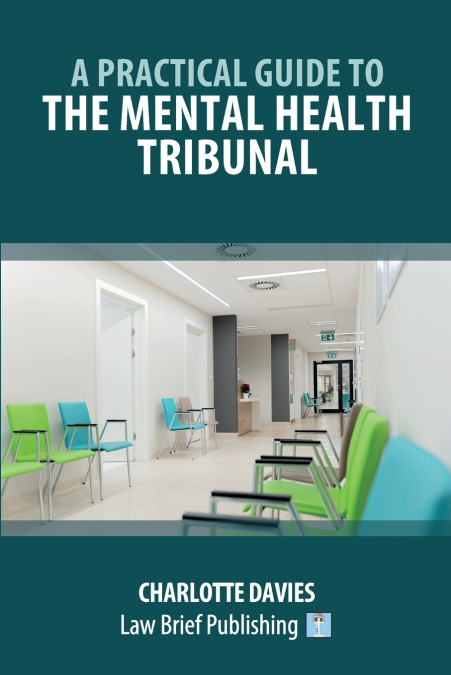
 Librería Perelló (Valencia)
Librería Perelló (Valencia)
 Librería Aciertas (Toledo)
Librería Aciertas (Toledo)
 El AlmaZen del Alquimista (Sevilla)
El AlmaZen del Alquimista (Sevilla)
 Librería Elías (Asturias)
Librería Elías (Asturias)
 Librería Kolima (Madrid)
Librería Kolima (Madrid)
 Donde los libros
Donde los libros
 Librería Proteo (Málaga)
Librería Proteo (Málaga)
The Mental Health Act 1983 is an Act that saves lives. But in order to do that, it gives the state powers to take control of people in a way that most of us would think should be reserved for those who commit the most serious of crimes. The deprivation of a person’s liberty and freedom is the most arbitrary course of action a state can take. Individuals suffering from mental disorders have no control over their diagnosis, or the symptoms that flow from it. It is these symptoms than can place them, and others, at risk from harm, and it is at that point that the provisions of the Mental Health Act 1983 step in. The Mental Health Tribunal is the independent judicial body set up to act as a check and balance on the use of those powers. It is vital to ensuring that the rights of individuals under the European Convention on Human Rights are adhered to.Practitioners who represent patients during the Mental Health Tribunal process need to have a rigorous understanding of the legal framework underpinning the ’sectioning’ process, as well as a thorough knowledge of the rules and procedures that govern the way in which detention under the Act can be challenged. They also need to possess and hone the very particular skills required when it comes to representing a person at their most vulnerable.This book aims to provide those who practise in the rewarding area of representing patients at Mental Health Tribunal hearings with an accessible and practical overview of what to expect both in the lead up to and during the hearing itself. Due to the very private nature of Mental Health Tribunal hearings, many representatives go into their first hearing without having had any specific training, and often without ever having even sat in on one at all. They have no idea what to expect, which, for a conscientious legal practitioner, can be extraordinarily stressful. This practical guide aims to alleviate at least some of that stress and provide the practitioner with the tools needed to gain the vital trust of the patient for whom the tribunal hearing will be seen as a pivotal moment on their mental health journey.ABOUT THE AUTHORCharlotte Davies has years of experience both representing patients at Mental Health Tribunal hearings, and then sitting as a judge on the tribunal panel. She was called to the bar in 2007, having read law at Bristol University followed by an LLM at King’s College London, with a focus on mental health law. After practising in London for three years, Charlotte moved to Cornwall with her young family and joined KBG Chambers, where she has a broad civil and general common law practice. In 2020, Charlotte was appointed as a Fee Paid First-Tier Tribunal Judge, sitting in the Health, Education and Social Care Chamber, and deployed to the Mental Health Tribunal. She is also a Deputy District Judge on the Western Circuit.CONTENTSChapter One - What Is the Mental Health Tribunal?Chapter Two - The Mental Health Tribunal’s PowersChapter Three - Sectioning Under the Mental Health Act 1983Chapter Four - When Does a Mental Health Tribunal Hearing Happen?Chapter Five - Making an ApplicationChapter Six - The Written EvidenceChapter Seven - The Application of the Statutory Criteria by the Mental Health Tribunal PanelChapter Eight - The Hearing: Part I - Online or Attended?Chapter Nine - The Hearing: Part II - Who Attends?Chapter Ten - The Hearing: Part III - the Panel & Preliminary IssuesChapter Eleven - The Hearing: Part IV - Oral Evidence, Submissions & the DecisionChapter Twelve - The Mental Health Bill 2022